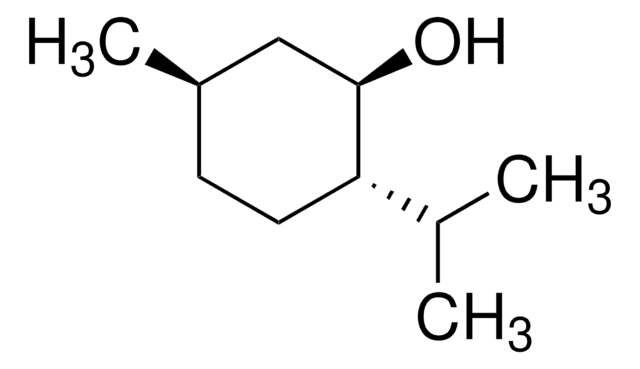32160
Diethylene glycol
puriss. p.a., ≥99.0% (GC), colorless
Synonym(s):
2,2′-Oxydiethanol, 2-Hydroxyethyl ether, Bis(2-hydroxyethyl) ether, Diglycol
About This Item
Recommended Products
description
non-ionic
Quality Level
grade
puriss. p.a.
assay
≥99.0% (GC)
form
viscous liquid (clear)
autoignition temp.
442 °F
expl. lim.
2-12.3 %
impurities
≤0.003% peroxides (as H2O2)
≤0.01% free acid (as CH3COOH)
≤0.1% water
≤0.8% ethylene glycol (HOCH2CH2OH)
color
colorless
APHA: ≤25
refractive index
n20/D 1.447
density
1.116 g/mL at 20 °C
1.118 g/mL at 25 °C (lit.)
cation traces
Ca: ≤5 mg/kg
Cd: ≤1 mg/kg
Co: ≤1 mg/kg
Cr: ≤1 mg/kg
Cu: ≤1 mg/kg
Fe: ≤2 mg/kg
K: ≤20 mg/kg
Mg: ≤1 mg/kg
Mn: ≤1 mg/kg
Na: ≤20 mg/kg
Ni: ≤1 mg/kg
Pb: ≤1 mg/kg
Zn: ≤10 mg/kg
SMILES string
OCCOCCO
InChI
1S/C4H10O3/c5-1-3-7-4-2-6/h5-6H,1-4H2
InChI key
MTHSVFCYNBDYFN-UHFFFAOYSA-N
Looking for similar products? Visit Product Comparison Guide
Related Categories
General description
Application
signalword
Warning
hcodes
Hazard Classifications
Acute Tox. 4 Oral
Storage Class
10 - Combustible liquids
wgk_germany
WGK 1
flash_point_f
280.4 °F - closed cup
flash_point_c
138 °C - closed cup
ppe
Eyeshields, Faceshields, Gloves, type ABEK (EN14387) respirator filter
Choose from one of the most recent versions:
Certificates of Analysis (COA)
Sorry, we don't have COAs for this product available online at this time.
If you need assistance, please contact Customer Support.
Already Own This Product?
Find documentation for the products that you have recently purchased in the Document Library.
Customers Also Viewed
Our team of scientists has experience in all areas of research including Life Science, Material Science, Chemical Synthesis, Chromatography, Analytical and many others.
Contact Technical Service



